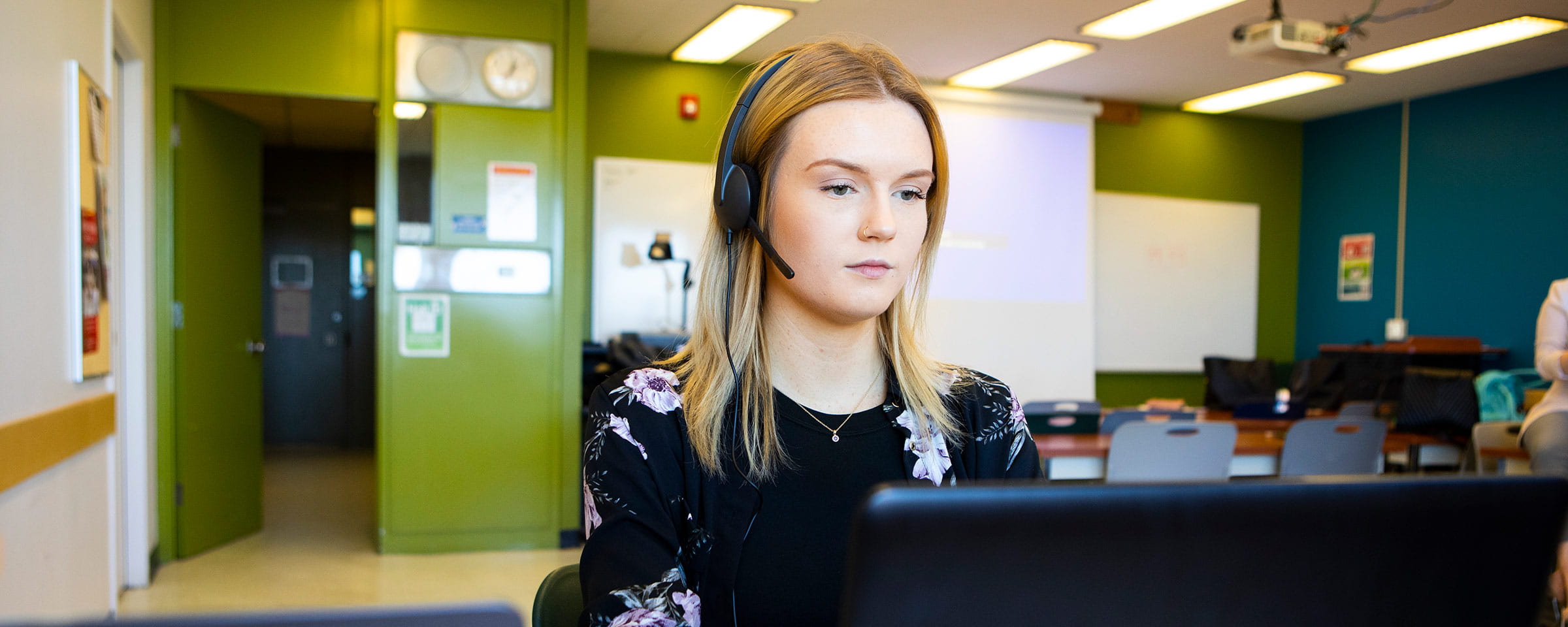


Read the Guide to Complete the Transfer Credit Request Form prior to completing the Transfer Credit Request Form.
With the completed Transfer Credit Request Form you will need to provide the relevant official course outlines or syllabi from your post-secondary institution. Ensure the documents are verifiably from your previous institution. More information is below on course outlines or syllabi requirements.
Also ensure that an official, final post-secondary transcript is submitted to the Office of the Registrar.
If you are in a full-time program, you can submit your request any time after you have paid your deposit to confirm your seat in the program. Since it can take a considerable time for coursework to be assessed for transfer credit, you are encouraged to submit your transfer credit application and required documents as early as possible once you have paid your deposit. For full-time programs with a Fall start date, it is strongly recommended that transfer credit requests and supporting documents be submitted by August 1.
For part-time programs, students must be registered in at least one course in their program of choice.
Requests must be submitted prior to the mid-point of the course(s) in question, at the very latest. There may be negative impacts on registration options, course add/drop deadlines, and tuition refunds for course credit requests submitted after the course(s) has started.
It can take considerable time for course work to be assessed for transfer credit, possibly 4-6 weeks. If RRC Polytech has a recorded standard equivalence for the course(s) you wish to transfer, the evaluation time is much less. Please note that during the months of July and August, course evaluators may not be available and the evaluation may be delayed until closer to the Fall term start date.
You will be notified by email of the results of your transfer credit requests. You can also check on HUB to view updates to your student transcript.
Ideally, requests for credit are made well in advance of your course registration date.
If you have not received a decision about transfer credit prior to your course registration date, please register for the courses you’ve requested credit in.
If your course(s) has already started, please attend classes until your request(s) has been officially approved.
A course outline or syllabus provides important information about the content of a course. It is required in order for an assessment of transfer credit to take place.
Course Outlines/Syllabi should typically include the following:
Outlines/syllabi should also be included for any lab component of a course.
The outlines must also be from the year and/or semester in which the courses were taken and must be supplied by the institution.
They should be verifiably from your previous institution. If they are retrieved from the official website of the institution, please ensure the web address is indicated. All course outlines/syllabi are subject to verification for authenticity.
While RRC Polytech understands that some institutions do not have course outlines/syllabi readily available, many students have been able to provide information requested by contacting individual faculty offices or faculty members at the institutions they have attended.
Note: Calendar descriptions are not sufficient for evaluation.
Yes.
For full-time programs, courses accepted for transfer credit must have been completed within the past five years.
For RRC Polytech Continuing Education, credit may be given for courses completed within time frames prescribed by Policy A20.
Please be aware that transfer credit awards can reduce course loads, which may impact full-time status. This has implications for international students’ post-graduate work permit eligibility, as well as student aid and student sponsorship eligibility. If you have any questions, please contact RRC Polytech International Education (for post-graduate work permit), RRC Polytech financial aid staff (for student aid eligibility) or the Indigenous Liaison Officer (student sponsorship).
Transfer credits are recorded as a “CR” grade on transcripts and do not add value to Grade Point Averages. This includes credit for all courses completed outside of RRC Polytech as well as internal RRC Polytech courses that are deemed equivalent to a specific program course.
Exception: For Internal RRC Polytech courses deemed identical or equated to a specific program course, the letter grade will be used in the calculation of program and cumulative grade point averages.
An official transcript is one that has been received in a sealed envelope directly from the issuing institution and has never been in possession of anyone other than the institution that issued it. In certain situations, a transcript sent by an institution via an approved electronic transmission process may be accepted as official.
If previous formal education does not meet the currency requirement, then a combination of a review of educational documents combined with another RPL method(s) may be required to ensure currency of learning. Please see our Recognition of Prior Learning information for more details.
You will be removed from the registered course you’ve received credit in, by our Student Records team. The course removal process will follow the College’s Refund Policies and Procedures including Policy A22 – Academic Standards, Section 18 (Withdrawals from Courses and Programs). The date of course removal will reflect the date you originally applied for credit.
While Apprenticeship training takes place at the College, we do not decide whether or not credit for Apprenticeship training components can be granted. Please contact your Apprenticeship Training Coordinator at Apprenticeship Manitoba to discuss the possibility of transfer credit.
RRC Polytech campuses are located on the lands of the Anishinaabeg, Ininiwak, Anishininwak, Dakota Oyate, and Denésuline, and the National Homeland of the Red River Métis.
We recognize and honour Treaty 3 Territory Shoal Lake 40 First Nation, the source of Winnipeg’s clean drinking water. In addition, we acknowledge Treaty Territories which provide us with access to electricity we use in both our personal and professional lives.